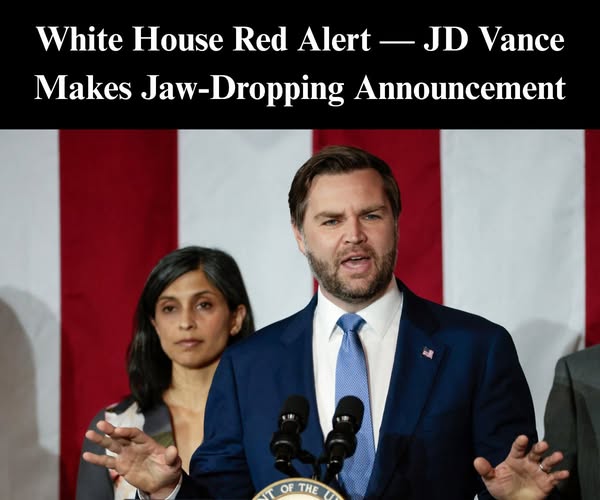Vice President JD Vance lauded progress made toward a US-India trade accord on Tuesday, saying cooperation between President Donald Trump’s administration and Indian Prime Minister Narendra Modi will ensure a “prosperous and peaceful” 21st century.
Speaking in the northern Indian city of Jaipur, Vance also warned of “dire” ramifications in the Indo-Pacific and a “dark time” for the globe if the US-India cooperation fails.
“Critics have attacked my president, President Trump, for starting a trade war in an effort to bring back the jobs of the past, but nothing could be further from the truth. He seeks to rebalance global trade so that America, with friends like India, can build a future worth having for all of our people together,” Vance said, referring to Trump’s aggressive tariff policies and commitment to revitalize U.S. manufacturing.
“Both of our governments are hard at work on a trade agreement built on shared priorities, like creating new jobs, building durable supply chains and achieving prosperity for our workers. In our meeting yesterday, Prime Minister Modi and I made very good progress on all of those points, and we’re especially excited to formally announce that America and India have officially finalized the terms of reference for the trade negotiations. I think this is a vital step toward realizing President Trump and Prime Minister Modi’s vision because it sets a roadmap toward a final deal between our nations. I believe there is much America and India can accomplish together,” Vance said.
“As many of you are, where both of our governments are hard at work on a trade agreement built on shared priorities like creating new jobs, building, durable supply chains, and achieving prosperity for our workers. In our meeting yesterday, Prime Minister Modi and I made very good progress on all those points and we are.
Especially excited to formally announce that America and India have officially finalize the terms of reference for the trade negotiation. I think this is a vital step. I believe this is a vital step toward realizing President Trump’s and Prime Minister Modi‘s vision, because it sets a road map toward a final deal between our nations,” Vance added.
WATCH:
Vance stated that his travel to India was his first time seeing the birthplace of his wife, Usha Vance’s parents. On Monday, the Vice President, the Second Lady, and their three children paid Modi a dinner call.
In his address on Tuesday, Vance stated that his children had only developed relationships with two international leaders: Trump and Modi, whom the second family first met in February at the AI Action Summit in Paris.
“Our kids just like him,” Vance said, arguing that children are “brutally honest” and typically good judges of character. “I just like Prime Minister Modi too. And I think it’s a great foundation for the future of our relationship.”
“President Trump and I know that Prime Minister Modi is a tough negotiator. He drives a hard bargain. It’s one of the reasons why we respect him. And we don’t blame Prime Minister Modi for fighting for India’s industry,” Vance said. “But we do blame American leaders of the past for failing to do the same for our workers. And we believe that we can fix that to the mutual benefit of both the United States and India.”
Vance appeared to refer to China, if indirectly, when discussing the high stakes aspect of trade discussions between the United States and India.
“This audience knows better than most: neither Americans nor Indians are alone and looking to scale up their manufacturing capacity,” Vance said. “The competition extends well beyond cheap consumer goods and into munitions, energy infrastructure and all sorts of other cutting-edge technologies. I believe that if our nations fail to keep pace, the consequences for the Indo-Pacific, but really the consequences for the entire world will be quite dire.”
“We believe a stronger India means greater economic prosperity. But also greater stability across the Indo-Pacific, which is, of course, a shared goal for all of us in this room,” the vice president continued. “I believe that if India and the United States work together successfully, we are going to see a 21st century that is prosperous and peaceful. But I also believe that if we fail to work together successfully, the 21st century could be a very dark time for all of humanity.”
Vance said the Trump administration recognizes that “cheap, dependable energy is an essential part of making things and is an essential part of economic independence for both of our nations.”
He said America is “blessed with vast natural resources and an unusual capacity to generate energy,” arguing that India would benefit from purchasing expanding U.S. energy exports by being able “to build more, make more, and grow more, but at much lower energy costs.”
“We also want to help India explore its own considerable natural resources, including its offshore natural gas reserves and critical mineral supplies,” he said. “We believe that American energy can help realize India’s nuclear power production goals, and this is very important as well as its AI ambitions, because as the United States knows well, and I know that India knows well there is no AI future without energy security and energy dominance.”
“Americans want further access to Indian markets. This is a great place to do business, and we want to give our people more access to this country,” Vance said. “And Indians, we believe, will thrive from greater commerce in the United States. This is very much a win-win partnership. It certainly will be far into the future.”
